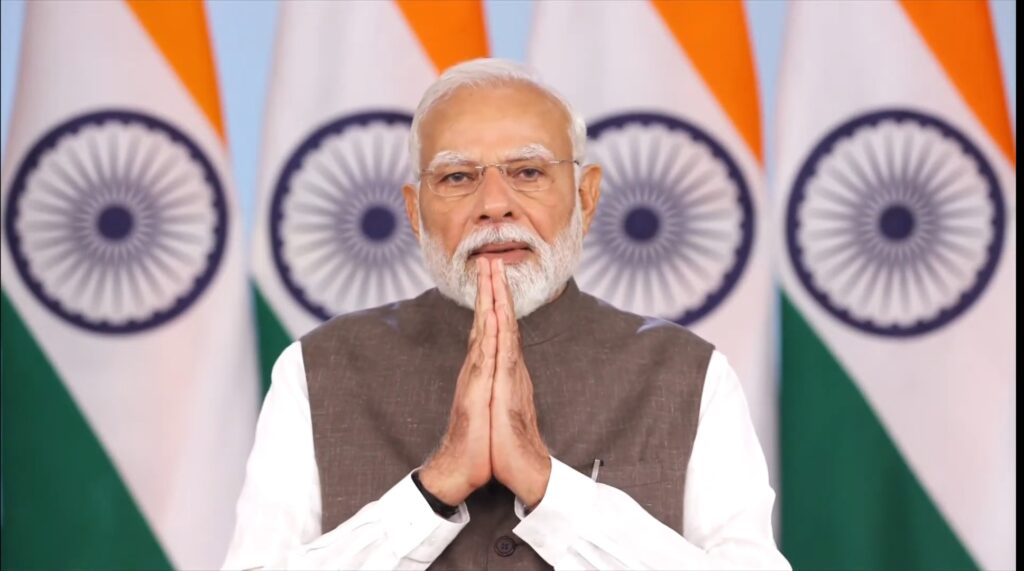(Forelines) – Indian Prime Minister Narendra Modi on Saturday, used videoconferencing to address the International Conference on Disaster Resilient Infrastructure 2025.
Speaking to the audience, PM Modi greeted them to the first-ever European hosting of the International Conference on Disaster Resilient Infrastructure 2025.
PM Modi thanked H.E. Mr. Emmanuel Macron, the president of France, and the French government for their assistance in planning the event. In addition, Modi wished the forthcoming United Nations Oceans Conference well.
“The theme of this conference is ‘Shaping a Resilient Future for Coastal Regions’. Coastal regions and islands are at great risk due to natural disasters and climate change. In recent times, we saw: Cyclone Remal in India and Bangladesh, Hurricane Beryl in the Caribbean, Typhoon Yagi in South-east Asia, Hurricane Helene in the United States, Typhoon Usagi in Philippines and Cyclone Chido in parts of Africa. Such disasters caused damage to lives and property,” said India’s PM Modi.
“India also experienced this pain during the super-cyclone of 1999 and the tsunami of 2004. We adapted and rebuilt, factoring in resilience. Cyclone shelters were constructed across vulnerable areas. We also helped build a tsunami warning system for 29 countries,” PM Modi added.
PM Modi praised the presence of representatives from the Pacific, Indian Ocean, and Caribbean regions and welcomed the African Union’s involvement in the Coalition for Disaster Resilient Infrastructure (CDRI), which is coordinating with 25 Small Island Developing States to build resilient homes, hospitals, schools, energy systems, early warning systems and water security measures.
India’s PM Modi also listed five major issues to highlight global importance.
First: Courses, modules and skill development programmes on disaster resilience need to become part of higher education. This will build a skilled workforce that can tackle future challenges.
Second: Many countries face disasters and rebuild with resilience. A global digital repository of their learnings and best practices would be beneficial.
Third: Disaster resilience requires innovative financing. We must design actionable programmes and ensure developing nations have access to finance.
Fourth: We consider Small Island Developing States as Large Ocean Countries. Due to their vulnerability, they deserve special attention.
Fifth: Strengthening early warning systems and coordination is crucial. This helps timely decisions and effective last-mile communication. I am sure that discussions in this conference will consider these aspects.
Modi was certain that these crucial issues would be covered in the conference’s talks.
India’s PM Modi emphasized the need for resilience in development and urged for the building of infrastructure that is resilient to the passage of time and the tide.
In his closing remarks, Modi urged international cooperation to create a robust and disaster-resistant future for all people.

